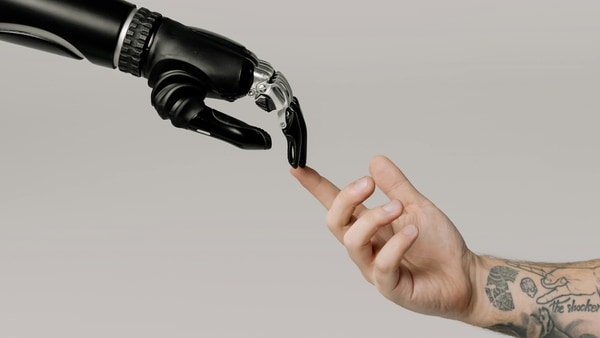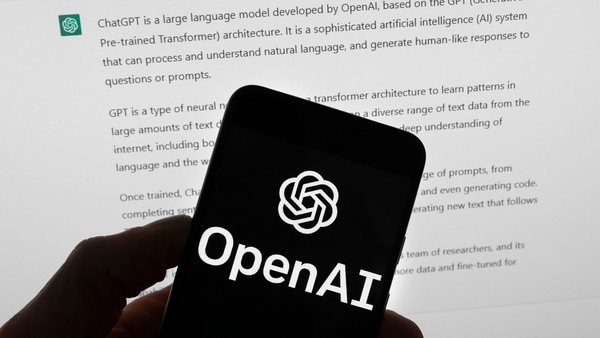
5 things about AI you may have missed today: AI 'Hiroshima', AI in education, and more
4 months ago | 5 Views
OpenAI and Arizona State University forge partnership to boost AI in education; Israel invests $2.7 mn in AI to enhance traffic safety; WHO issues ethics guidelines for advanced AI models in healthcare; Amazon's AWS to invest $15 billion in Japan for cloud computing expansion- this and more in our daily roundup. Let us take a look.
1. OpenAI and Arizona State University forge partnership to boost AI in education
OpenAI has joined forces with Arizona State University (ASU) to extend AI applications in academia. ASU gains access to ChatGPT Enterprise, enhancing security and speed. Despite initial concerns about misuse, ASU President Michael Crow embraces AI's potential in education. OpenAI aims to amplify ChatGPT's impact in higher education through collaboration and learning from ASU's open challenge starting in February. Seemingly, data privacy is assured, with OpenAI not using ASU data for training, Reuters reported.
2. Israel invests $2.7 mn in AI to enhance traffic safety
Israel's Ministry of Transport and Road Safety invests $2.7 million in AI initiatives for enhanced traffic safety. The first project focuses on developing an AI tool that compiles data from diverse sources, including unreported incidents and near misses, to assess road safety risks comprehensively. The second initiative aims to tackle traffic congestion by identifying optimal solutions. The system will incorporate data from police, insurance companies, hospitals, traffic cameras, weather, and more, according to an ANI report.
3. WHO issues ethics guidelines for advanced AI models in healthcare
The World Health Organization (WHO) issues guidelines for the ethical use of large multi-modal models (LMMs), a rapidly advancing form of generative AI. With over 40 recommendations, the guidance targets governments, tech companies, and healthcare providers, emphasising responsible LMM utilisation for public health. LMMs, capable of processing various data inputs and mimicking human communication, pose potential benefits in healthcare, but proper risk management and transparency are crucial, says WHO Chief Scientist Dr. Jeremy Farrar.
4. Amazon's AWS to invest $15 billion in Japan for cloud computing expansion
Amazon Web Services (AWS) announces a $15.24 billion investment in Japan by 2027 to expand cloud computing infrastructure, supporting AI services. The plan involves enhancing facilities in Tokyo and Osaka to meet rising customer demand. This follows a prior investment of $12.79 billion from 2011 to 2022. AWS provides generative AI services to Japanese corporate clients, including Asahi Group, Marubeni, and Nomura Holdings, amid Japan's push to advance in AI development, according to the Reuters report.
5. Salesforce CEO urges safety measures to prevent AI ?Hiroshima'
Salesforce CEO Marc Benioff warns against an AI 'Hiroshima' and emphasises the tech industry's need for safety protocols and trust principles. Concerns over AI's rapid progress and potential risks have led to initiatives like safety summits. Benioff stresses the importance of avoiding catastrophic outcomes, referencing a UK event and urging vigilance in addressing AI's trustworthiness, biases, and societal impacts. Salesforce has its generative AI, Einstein GPT, CNBC reported.
Also read these top stories today:
AI Healthcare Risk! "As LMMs gain broader use in health care and medicine, errors, misuse and ultimately harm to individuals are inevitable," the WHO cautioned. Know some of the benefits too. Check them out now here.If you enjoyed reading this article, please forward it to your friends and family.
No ChatGPT Bang for Bing Buck! When Microsoft announced it was baking ChatGPT into its Bing search engine, bullish analysts declared the move an ?iPhone moment?. But that does not seem to have happened. Know what happened here.
Humans Trump AI! OpenAi CEO Sam Altman is saying people are smart enough to figure out what to use ChatGPT for and what not. "People have found ways to make ChatGPT super useful to them and understand what not to use it for, for the most part," says Sam Altman. Read all about it here. If you enjoyed reading this article, please forward it to your friends and family.
Read Also: empowering entrepreneurs in emerging markets: how ai could be your next business partner

















